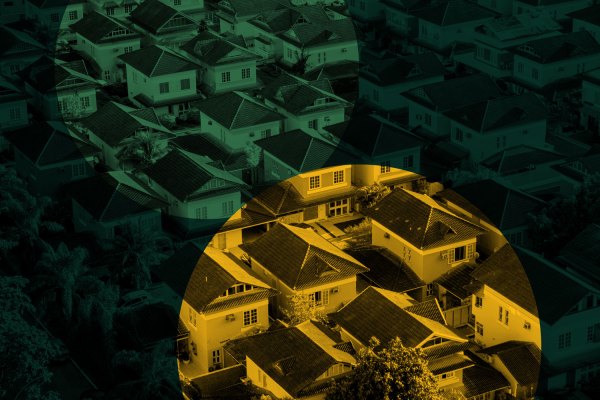SkyCell raises $57M at a $600M valuation to build smart containers for pharmaceutical transport | TechCrunch
The Covid-19 pandemic put a spotlight on how critical the development and distribution medicine can really be. Vaccines for the coronavirus typically needed to be kept at very specific temperature controls to remain active, so getting them to where they needed to be in temperature-safe condition became nearly as important as making them at all. Today, SkyCell — one of the companies that built containers to transport these medicines, along with many other un-shelf stable pharmaceuticals that are used to treat a variety of conditions — is announcing a big round of funding to fuel its growth. The Swiss startup has picked up an equity round of $57 million, along with a new valuation of $600 million.
The funding comes as SkyCell reaches new heights of its own, so to speak: it’s now transporting $1.5 billion of pharmaceutical products each month (finished and raw materials). It says that this works out to hundreds of million doses of vaccines, cancer treatments, diabetes care and diagnostic solutions. Ironically, despite the startup’s role in helping move around vaccines, the peak of the pandemic years were not the best for SkyCell’s growth: because everything else effectively halted in terms of medical care, and supply chains slowed down significantly, so too did SkyCell’s business.
Now the company has returned to its “normal” growth rate, Richard Ettl, the co-founder and CEO, said in an interview, which is between 40% and 50%.
Catalyst, a division of M&G Investments, is leading the round and is the only investor being disclosed. The company has previously raised around $133 million, including rounds of $62 million and $35 million; backers have included insurance companies, financiers from the Middle East, and specialist healthcare investors.
Typically, the transportation route for urgent medications, as well as ingredients that pharmaceutical companies need to prepare finished medications, is a tricky one: air cargo is the norm for these for time-sensitive reasons. But ambient temperatures in the process of being transported — which includes getting packed into a plane, flying, landing, and getting through customs — can vary by as much as 100 degrees (specifically, -30°C and as high as +70°C).
SkyCell has, in essence, devised a vertically integrated business to tackle this challenge. At the center is a piece of hardware, which is a transport-ready “smart” box, built around IP that SkyCell itself has devised (it has around 140 patents currently). The latest version of the box can run up to 180 hours.
“That gives you massive protection when things go wrong, and they go wrong all the time,” said Ettl. Other approaches for transporting temperature-sensitive have remained remarkably low-tech and wasteful. Around 70% of the industry these days still uses throwaway solutions, including styrofoam and chill packs. But the resulting waste of that incumbent process is huge: estimated to be around $35 billion annually in products that spoil, SkyCell said.
That speaks also to the reality of the slow process that enterprises really do go through when they update systems, and it’s an instructive lesson to other startups targeting similar kinds of disruption.
Pharma, Ettl said, is a prime example of a big, established industry that needs time to accept and trust change. “You need the pharma company to buy into a new player, but they can’t rely on someone who might go bust in a year’s time. ‘Come back, I don’t want to be your guinea pig,’ they said. To overcome that has been extremely hard. All of this needs to be proven. We are now ten years old, and it took us six or seven years to get going.” At ten years old, it’s still the “youngest company in the industry,” he joked.
Alongside the container itself, the company has also built an analytics platform for its customers to monitor and manage its supplies as they move from from lab to lab and to distribution centres: with the boxes typically getting acquired outright, this gives the company a recurring revenue stream on top of them to manage the business.
There are a number of directions that a company like SkyCell could go in terms of development: for starters there are a number of other products, namely food, that also need particular temperature controls. The company has chosen to stay focused on pharmaceuticals, and to continue improving there rather than diversifying. Its main focus right now is on sustainability and transferring to a CO2-neutral supply chain, speaking also to the emissions and sustainability goals that its large customers in pharmaceuticals, and air transport, might be trying to achieve as well.
“We are delighted to join SkyCell on its mission to deliver life-saving drugs globally in a safe and reliable manner. We believe the innovative design of the SkyCell solution will play a key role in decarbonising the pharmaceutical supply chain and ensure zero waste,” said Praveg Patil, deputy head of EMEA investments at M&G’s Catalyst team. “From an impact perspective, this investment covers two key thematic areas for Catalyst – climate solutions and healthcare and provides our investors with exposure to the attractive growth potential of high-end biological pharmaceutical products.” Patil is joining the board.
Along with the funding, the company has appointed Dr Remo Gerber as its CFO: Gerber previously ran the European business of ride-hailing company Gett, and before that was leading Groupon’s EMEA business.




